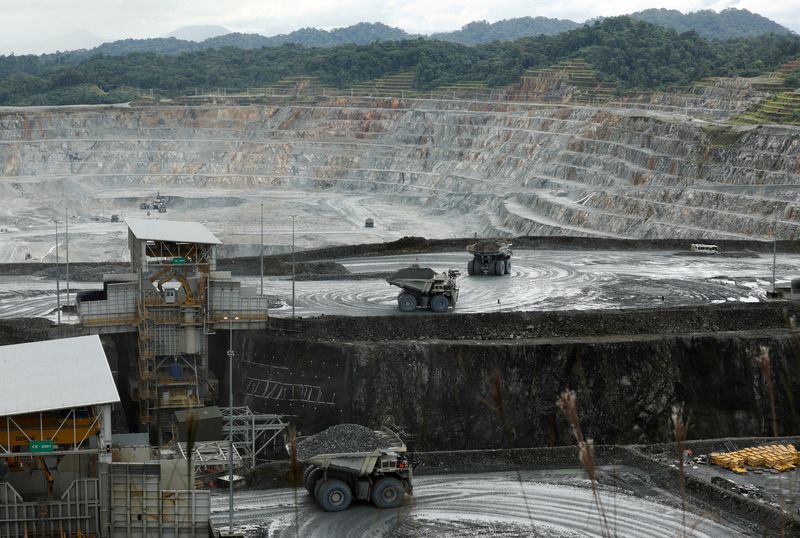By Valentine Hilaire
MEXICO CITY (Reuters) -Panama will not allow Canada's First Quantum to expand the area of its existing copper mining operations, the deputy environment minister told Reuters, stressing the government's opposition to what it said was a request from the firm for more land.
The comments from Deputy Minister Diana Laguna come as both sides negotiate a new contract for the major copper mine amid a longstanding dispute, with taxes and other payments to the government at the forefront of discussions.
"The company has asked for more surface to operate and we have said no," Laguna said. "They must work with what they have. It is more than enough."
A spokesperson for First Quantum denied that the firm is requesting additional land for the mine.
Laguna added that in negotiations over the new contract her ministry was pushing to install an office at the Cobre Panama mine to monitor its environmental footprint and assure tighter controls.
This followed what she described as failed environmental commitments, including one that called for reforestation.
Laguna said First Quantum had reforested only a small fraction of the required land and noted it had five pending judicial cases centered on environmental concerns.
First Quantum's spokesperson said the firm has agreed to the creation of the on-site office and significantly limit its easement right, which outlines uses for land beyond mining.
Panama's environmental ministry said there is no agreement around the miner's easement rights.
The Cobre Panama mine's environmental impact has been at the forefront of talks, Laguna said, since the mine had been operating under a 1997 contract that did not even require an environmental study.
From the $375 million Panama is requesting First Quantum pay each year, the government aims to use some $11 million on environmental protection around the mine.
The mine is an important asset for both parties, accounting for about 3.5% of Panama's gross domestic product and about half of First Quantum's 2021 core earnings.
The government is reviewing requests for mining concessions in the area from other companies, such as Broadway Strategic Minerals Panama and Exploraciones Geologicas.
Asked about those requests for concessions, Laguna said the Cobre Panama mine itself was already large enough and authorities needed to concentrate now on mitigating its environmental impact.
"Concessions can be granted but they still need to meet our environmental guidelines before actually starting operations. That has not happened yet," she said, stressing the government was not anti-mining but was calling for responsible projects.

Construction projects would also be closely watched this year, Laguna added, saying the ministry was considering a "small tax" on fossil fuels, the income from which would help finance the ministry's projects.
"For now it is under evaluation, but it could boost our budget, which was hurt after the COVID-19 pandemic, she said.
